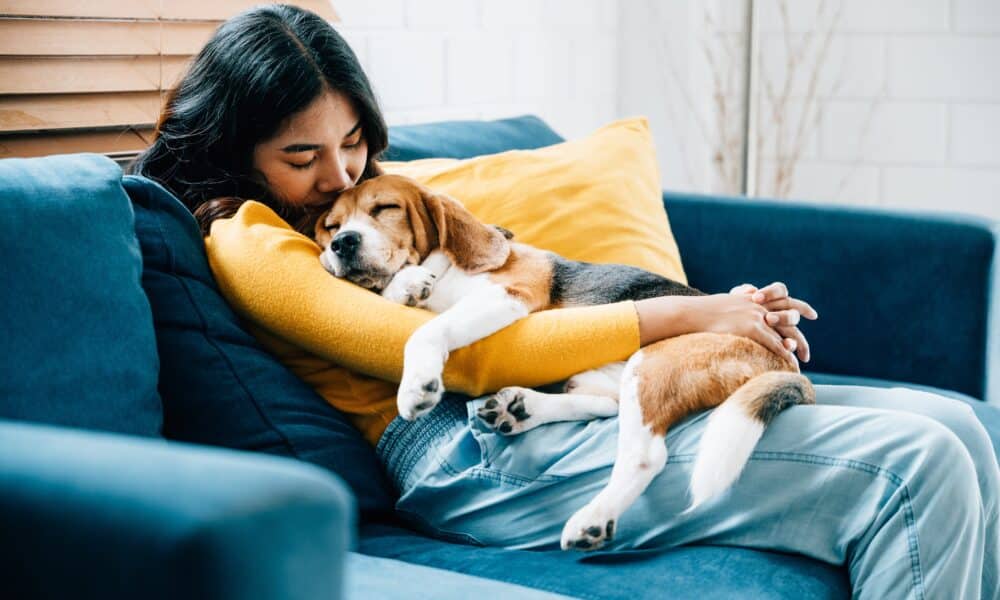“This post contains affiliate links, and I will be compensated if you make a purchase after clicking on my links.”
In a brand new examine, researchers in Hungary surveyed 800 canine homeowners and located that all of them match into three distinct classes.
The examine, revealed on Scientific Stories on November 12, dives into the position canine homeowners play of their pet’s life and the way it impacts their each day life.
“Owned dogs are often regarded as family members, best friends, or even as substitutes for children,” the examine’s summary learn.
“These new roles and their effects on human well-being have received scientific attention, but little is known about how attributing such social functions to dogs might influence the caring behaviour of the owner, which in turn can impact canine welfare.”

Within the examine, the researchers created a web based survey to reply their questions concerning the traits of the proprietor and the canine, administration practices of the proprietor, the canine’s habits, and plenty of extra.
The researchers acquired outcomes that helped them put the 800 canine homeowners into three distinct classes. These outcomes embrace:
What homeowners appreciated about their canine:
- Petting and bodily contact with their canine (97.6%)
- Unconditional love (93.7%)
- The canine’s magnificence (88.4%)
- Strolling with the canine (86.5%)
Most incessantly talked about issues:
- Socialization points (20.4%)
- Lack of time (15.9%)
Most incessantly talked about canine habits issues:
- Leaping up (33.2%)
- Chasing animals (28.5%)
- Territoriality (26.7%)
- Overexcitement (20.9%)
Moreover, the researchers discovered that just about 1 / 4 of canine homeowners rated their canine as “totally obedient” whereas 30.6% are rated as “totally safe off-leash”.
With these outcomes, the researchers had been capable of give you three canine proprietor profiles, based mostly on the roles they attribute to their canine. And these three classes are:
- Canine Mother and father (49.5%): These are the canine homeowners who rated their canine greater on the next roles: domesticated animal, pal, member of the family, baby, and extra vital than any human, in comparison with the roles of colleague and help/guard canine. This canine proprietor profile emphasizes that these canine homeowners consider their canine as relations.
- Companion Canine House owners (19.4%): These canine homeowners are described as individuals who maintain canine for companionship however seem to keep up a larger emotional distance from their canine.
- Twin Standing House owners (31.1%): These canine homeowners are a mixture of each profiles. They see their canine as their “colleague” and safety guard to maintain them firm and protected, but additionally has robust emotional ties to their canine.
“As we previously assumed, several dog and human factors were associated with these three profiles,” stated Professor Eniko Kubiny, one of many examine’s researchers and the pinnacle of the Division of Ethology on the Eötvös Loránd College.


“For instance, dogs with dual functions were perceived as very obedient and were trained with positive reinforcement and professional training methods like clicker training.”
The researchers concluded that regardless of basic pattern noticed in Western nations, not all canine homeowners are the identical.
“Despite the general trend observable in Western countries, in which dogs are more and more perceived as family members providing unconditional love and support, this study highlights that not all dog owners are the same, even in a convenience sample interested in dog behavioural studies.”
And whereas they consider that their analysis might not be true for your complete pet canine inhabitants, they consider that the outcomes “contribute to a better understanding of the modern dog-human relationship.”
What do you assume? Which class do you belong to?

Supply hyperlink
